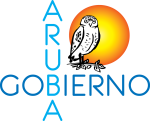Department Nature and Environment (DNM)
The Department of Nature and Environment is in charge with the task to:
prepare, design, implement and evaluate policies that lead to a sustainable healthy environment for people and nature in Aruba where the main goal is to preserve, protect and improve natural and environmental qualities.
The Department Nature and Environment (DNM) was formally established on January 1, 2012, according to the National Decree of November 30, 2012. The DNM is primarily a policy entity and has as core tasks:
- Policy making;
- Research and monitoring;
- Inspection.
The work areas of the DNM are as follows:
- Waste;
- Biodiversity and ecology;
- Hazardous substances;
- Climate change and air quality;
- Soil quality;
- Water quality;
- Businesses.
DNM consists of:
- General Support Division;
- Legal Support Division;
- Communication Support Division;
- Core policy Division;
- Research and Monitoring Division;
- Inspection Division.
The leadership of the DNM rests with the director.
The Policy Division is in charge of core policy and information generation for policy formulation and evaluation.
The Research and Monitoring Division focuses on preparing and doing research and analysis in the field of nature and environment. The research is used to prepare and develop environmental policies.
The Inspection Division detects criminal acts as stipulated in law and regulations, guidelines, licenses and agreements and also registers notifications and reports about nature and the environment. This department is autonomous in the drafting of official reports and in forwarding them for sanctions or prosecution.
Additionally, there are also various departments responsible for the execution of nature and environmental tasks.
- Department of Public Works (DOW) is responsible for sewage purification, maintenance of gutters (rooi), beaches, roadsides and other landscaping. In case of dangerous substances DOW manages a depot for explosives.
- The Inspection of Medicine is responsible for monitoring among others the import of insecticide and biochemical weapons.
- Serlimar is responsible for the collection of household waste and manages the landfills Parkietenbos and Gabilan.
- The Contingency Plan states that in case of an incident or disaster, the Fire Department is the first responder for cases involving the environment. In the yet to be defined sub-plan environment of the contingency plan, the departments to be called upon to provide assistance, are mentioned.
